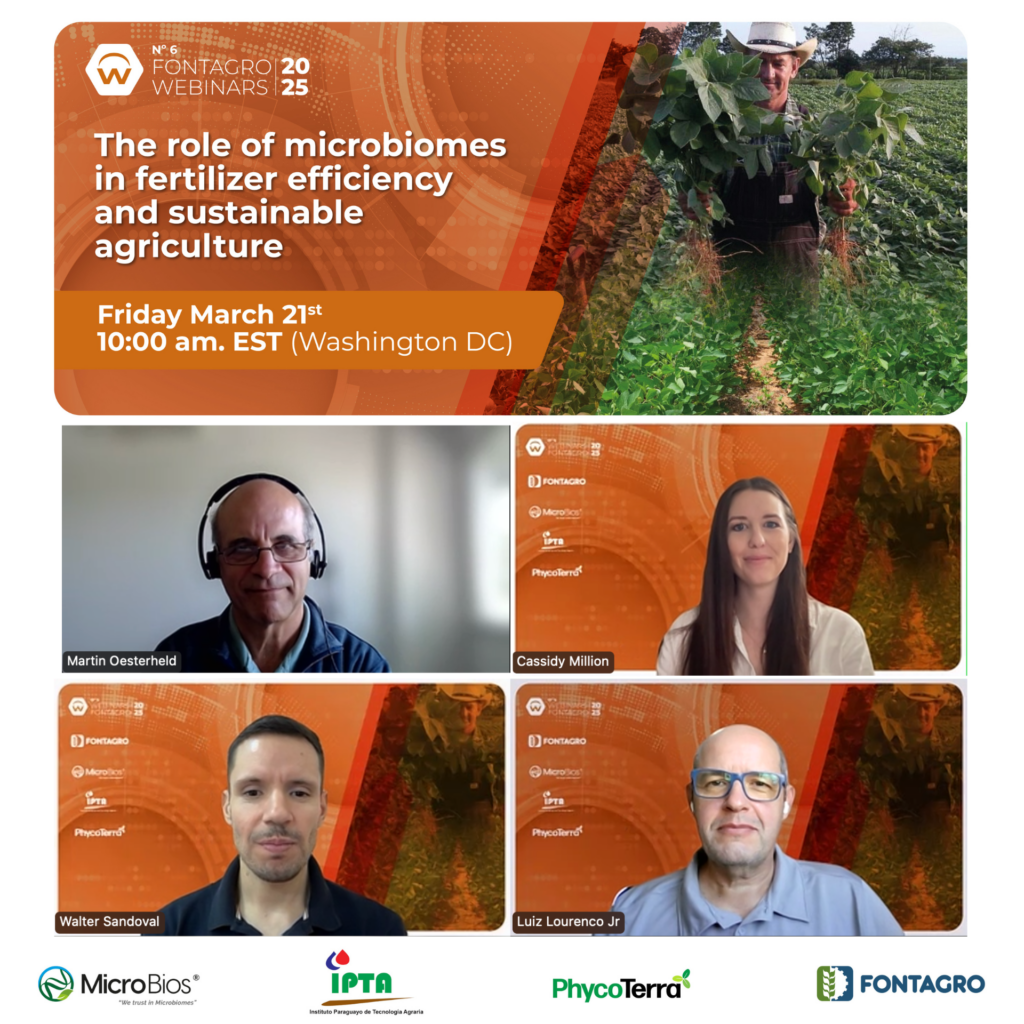
In a recent FONTAGRO webinar that brought together experts in agroecology and sustainability, participants discussed the vast opportunities the soil microbiome offers to improve fertilizer effectiveness and promote sustainable agricultural practices in Latin America and the Caribbean. The event, part of a broader initiative to strengthen cooperation in the agricultural sector, focused on the benefits of microbial biodiversity and its crucial role in increasing agricultural productivity.
The session featured presentations by Dr. Walter Sandoval, Scientific Director at MicroBios S.A. (Paraguay); Dr. Cassidy Million, Vice President of Agricultural Science at Heliae® Agriculture (USA); and Dr. Luiz Lourenço Jr., also from Heliae (Brazil). The speakers highlighted how over 17 million smallholder farmers in the region are facing climate-related challenges and improving their production methods through collaboration and the use of innovative technologies.
The experts emphasized that a diverse and healthy soil microbiome not only enhances plant health but also improves nutrient availability and fertilizer efficiency. It was noted that up to 60% of fertilizers applied to crops may be used inefficiently, but soil microorganisms can help make these nutrients more bioavailable to plants. Restoring microbial diversity was presented as a key strategy for maximizing agricultural productivity.
Various approaches to improving soil health were discussed, including feeding existing microbes with active carbon, implementing practices such as composting, and planting cover crops. These methods not only improve soil structure but also enhance moisture retention and crop resilience under adverse climate conditions.
The webinar also presented case studies from countries such as Paraguay, Uruguay, and Ecuador, where integrating microbiomes into different cropping systems has led to significant increases in productivity and nutrient use efficiency.
To watch the recording of this webinar, visit:
https://www.youtube.com/live/uweKS3dd9-M?si=0rmfoO_5CpHiPJZ1
***
About FONTAGRO
FONTAGRO was created 1998 with the purpose of promoting the increase of the competitiveness of the agri-food sector, ensuring the sustainable management of natural resources and the reduction of poverty in the region. The objective of FONTAGRO is to establish itself as a sustainable financing mechanism for the development of agricultural technology and innovation in Latin America and the Caribbean and Spain, and to establish a forum for the discussion of priority topics of technological innovation. The member countries are: Argentina, Bolivia, Chile, Colombia, Costa Rica, Ecuador, Spain, Honduras, Nicaragua, Panama, Paraguay, Peru, Dominican Republic, Uruguay and Venezuela. In the last 27 years 204 regional agricultural innovation platforms have been co-financed for an amount of US $ 150.7 million, which has reached 531 institutions and 35 countries worldwide.
